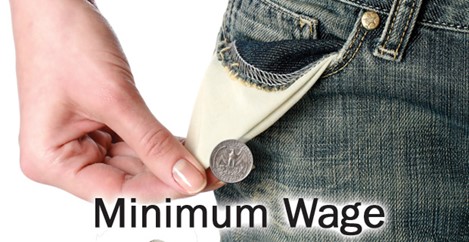 As my 13-year-old brother and I pulled up to my apartment building, he inquired how much I pay for rent each month.
As my 13-year-old brother and I pulled up to my apartment building, he inquired how much I pay for rent each month.
“About $800,” I answered. I felt a surge of pride regarding my financial independence, and I expected his mouth to drop open in awe or shock.
“That’s it?” he answered.
It was not the reaction I’d anticipated, especially from someone who earns $4 an hour for babysitting. I could’ve explained that each rent payment requires 80 hours of scooping congealed food onto plastic plates at my job. I doubt it would’ve had much effect, though, as
my brother is more interested in how well stocked my refrigerator is with Mountain Dew.
Paying bills is an eye-opener
As a teenager, you don’t think about the high costs of living. I used to be irritated that my mom bought Super Chill sodas instead of Pepsi products to save money. I didn’t understand why she yelled at me for leaving the lights on. When I moved out, though, her obsession with saving every dollar suddenly made sense: REAL LIFE IS EXPENSIVE.
Let’s start with your shelter. Let’s say you’ve just moved out of your parents’ house, and you live in an apartment. The first day of every month you will be expected to pay anywhere between $500 and $1,500 (depending on where you’re living, apartment size and amenities,
etc.) for rent. If you have a roommate, you will split this cost.
Along with rent, you’re responsible for paying water, heating, and sewage costs, so you can add an extra $25 to $50 to each rent payment. You may even have to pay $75 a month for a garage unit. Whew. This is starting to add up.
Of course, you’ll want entertainment, via streaming TV, internet and cellphone bills. So budget for that, too.
Working long, and hard
To afford rent, utilities, and entertainment, you’ll have to work (unless your parents or a rich uncle are taking care of you after high school). Enter transportation costs. Prepare to shell out $25 or more a week for gas, plus $100 a month for car insurance. If you forego car insurance and crash, you’ll owe thousands of dollars, depending on the damage, and some states require liability insurance.
Scraping by on minimum wage isn’t pretty. If you want to live comfortably, education now—and after high school—is the key. You might be too exhausted from work to eat—which could help, as you might not be able to afford even Ramen noodles. Better stay healthy, though, especially if you can’t afford health insurance. Being diagnosed can cost hundreds— and that’s before treatment.
Here’s the simple fact: Without education— education past high school, preferably—your chances of sustaining a “basic” lifestyle are slim. And basic means no vacations, no money for the latest gadgets or clothes, and no time to enjoy what you have because you’d be working around the clock. (By the way, with just the expenses checked off above— and I left healthcare and food out—you’d have to come up with about $1,050 each month to live.)
In your teens, you don’t have a lot of work experience or a degree, which means you’re worth minimum wage. And though minimum wage varies by state, it’s not an amount that’s easy to live on.
Education is key to greater earnings
To maximize earning potential, you must pursue education beyond high school. Dr. Robert Poch, a senior fellow at the University of Minnesota, Department of Postsecondary Teaching and Learning, advises students to “actively seek information from experienced professionals in fields that interest them, including what educational pathways lead to those professions.”
If you want to live and not always struggle, start now. Do your research. Imagine the kind of lifestyle you’d like, and compare that with the financial realities of professions you might pursue. Then, while you’re in high school, prepare yourself for the educational requirements
of those professions. Studying hard is difficult, but so is subsisting on microwave food.
